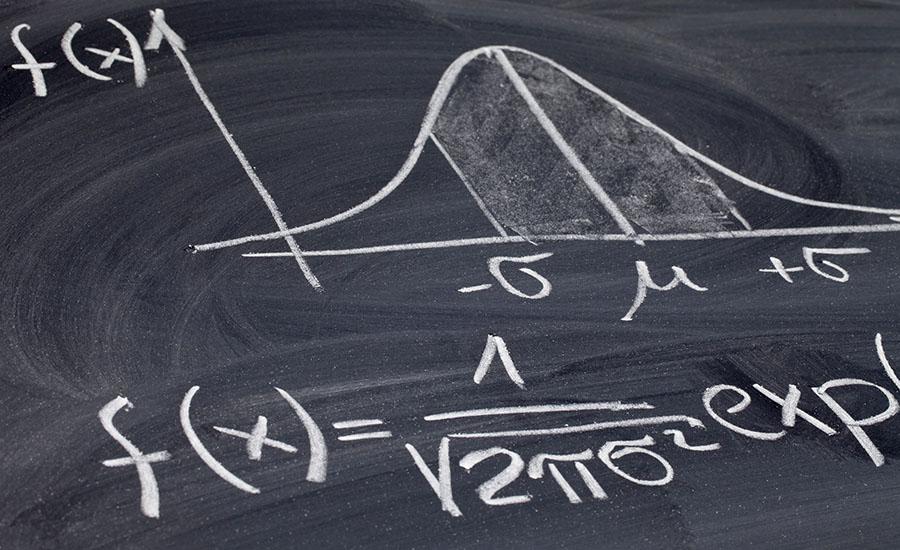Grades:
3rd Grade, 4th Grade
In this 60-minute lesson, students will explore and analyze weather patterns using technology. They will use computers or tablets to access weather websites and apps, collect and record weather data
Grades:
Kindergarten, 1st Grade, 2nd Grade
This lesson is designed for K-2 students to explore and understand weather patterns using technology. Over the course of 45 minutes, students will use tablets or computers to gather real-time weather
Grades:
3rd Grade, 4th Grade, 5th Grade
Will integrating school gardening with bird watching, building nest baskets and a bird bath using ornithology methods increase the population of birds at our site? This lesson was developed by PBL
Grades:
7th Grade, 8th Grade
This lesson has students examining isochron maps of the Earth's seafloor and looking for patterns to support evidence of continental drift. A prerequisite include a previous lesson of continental
Grades:
5th Grade
This lesson includes Grade 5 Math, Engineering, ELA and ELP Standards. The activity focuses on applying mathematical concepts to a hands-on architectural design task, inspired by Frank Lloyd Wright’s
Grades:
5th Grade
This lesson is designed for Grade 5 students to explore fraction operations through hands-on activities with Dash Robots. Students will work collaboratively in groups to apply math skills and enhance
Grades:
Kindergarten, 1st Grade
In this lesson, students will play a small group coding game to retell the events in the read aloud, If You Take A Mouse To School, and then use the Engineering Design Process to plan, design, and
Grades:
6th Grade
Students are to design and build a truss-style bridge out of balsa wood before testing its strength.
Grades:
5th Grade
In this lesson, students will need to obtain, evaluate and communicate the effects of gravity on objects. Students will watch an engagement video demonstrating how many objects fall to the ground
Grades:
7th Grade
The purpose of this project is to provide students with a hands-on learning experience that combines the study of human body systems with engineering principles. By investigating the interaction
Grades:
Kindergarten, 1st Grade
In this lesson, students will be introduced to coding with the read aloud Mouse Count, play a simple Bottle Cap Arrow Game to learn directionality, and learn to program their Code & Go Mice with arrow
Grades:
4th Grade
In this multi-day lesson, 4th-grade students will explore the concept of symmetry in nature using iPads and digital tools. They photograph and edit images of natural objects, then create digital
Grades:
9th Grade, 10th Grade, 11th Grade, 12th Grade
This lesson is focused on solar energy, students engage in a hands-on exploration of photovoltaic cells, motors, and light bulbs to investigate the correlation between light intensity and solar power
Grades:
3rd Grade
In this lesson, students will create a plant maze to observe and demonstrate how plants react to the stimulus of light (phototropism). This hands-on activity will help students understand how plants
Grades:
9th Grade, 10th Grade, 11th Grade, 12th Grade
In this lesson plan, high school students will explore the concepts of AC and DC currents through hands-on experimentation. The lesson begins with a brief discussion on the fundamentals of alternating
Grades:
5th Grade
Students will be able to identify the planets in our solar system, describe the difference between rotation and revolution, and engineer a three dimensional model of our solar system.
Grades:
5th Grade
"Baozi" (steamed bun) is a traditional Chinese food commonly eaten as a breakfast or snack. It consists of a soft, fluffy dough filled with a variety of savory or sweet fillings. Popular fillings
Grades:
Kindergarten
In the "Jack's Garden Adventure" lesson, kindergarten students will develop an appreciation for nature and gardening through a combination of storytelling and hands-on activities. Starting with a read
Grades:
8th Grade
Students will review heredity and genetics using this lesson plan. Students will have an opportunity to explore generations, genetic variations, pedigrees and fitness using this lesson plan and PhET
Grades:
8th Grade
Students will begin looking at how substances are made up of elements and use a model to show how atoms can arrange to make substances and then rearrange to make other substances. Students start by
Grades:
6th Grade
Students will research, construct, and present replicas of ancient civilization monuments. They will explore the historical and cultural significance of these monuments and integrate knowledge from
Grades:
6th Grade
Students will explore ancient civilizations and understand the geographic factors that influenced their settlements. They will create informative maps highlighting key areas like water sources that
Grades:
4th Grade, 5th Grade
This lesson integrates math practice with hands-on experience in vermicomposting, reinforcing environmental awareness and mathematical skills among Arizona 5th-grade students. Math practice involves
Grades:
8th Grade
This is an 8th-grade lesson designed to help students refine their thinking about how sound travels through a medium. It includes a computer simulation to help students visualize particle movement and
Featured Lesson Plans
Check out these notable lesson plans.

Featured
Arizona Animal Crossing
Grades:
6th Grade
In this lesson, students use the engineering process to solve a real-world problem along the I-10 in Arizona. Students analyze data about roadkill along a particular stretch on the I-10 just outside

Grades:
4th Grade
Go through different STEM, reading, and writing activities with Roz and her friends in The Wild Robot. Students will problem solve, participate in discussions, and learn about artificial intelligence

Grades:
9th Grade, 10th Grade, 11th Grade, 12th Grade
This lesson uses a Modeling Instruction approach to developing the graphical and mathematical relationships for Circular Motion for students in Grades 9-12. Students design an experiment, collect data
